
British defense ministry says Ukraine has ‘repelled’ numerous Russian assaults in Donbas, while attacks on other regions rage on

It’s 6 p.m. on Sunday in Kyiv. Here’s what you need to know
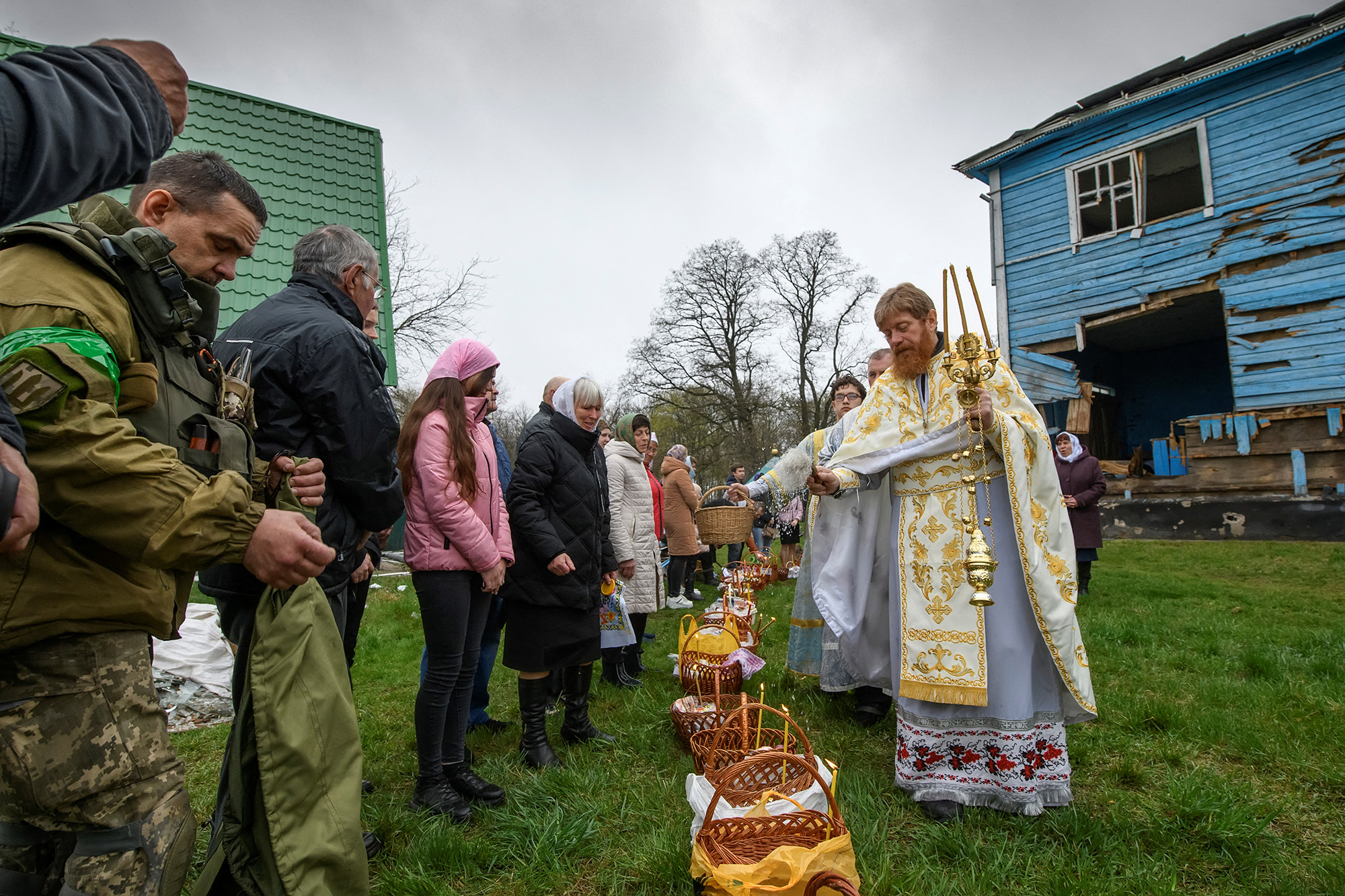
Ukrainian President Volodymyr Zelensky says he will meet top US officials in Kyiv on Sunday, as heavy fighting continues in the east and south of the country over Ukraine’s Easter weekend.
Meanwhile, many Ukrainians are attempting to celebrate one of their most important holidays of the year, Orthodox Easter, two months after the country was thrust into a devastating war
Zelensky said he was “expecting specific things and specific weapons” from world leaders who come to the country, after announcing that he would meet US Secretary of State Antony Blinken and US Secretary of Defense Lloyd Austin in Kyiv on Sunday.
The White House has declined to comment or confirm the potential trip, which would be the first visit to Ukraine by top US officials since the war broke out.
Here are more of the latest headlines on the Russia-Ukraine war:
- Russian forces continuing attack on Mariupol, Ukrainian commander says in Easter message: In an Easter message, Capt. Svyatoslav Palamar, the deputy commander of Ukraine’s Azov Regiment, said Sunday that Russian forces were continuing to bombard the city of Mariupol, underscoring the need for evacuation of civilians and encircled Ukrainian forces. “Christ is Risen, dear Ukraine,” he said. “Today is a big day but even so, the enemy continues to drop aerial bombs, ships fire artillery, cannons fire, enemy tanks continue to hit, infantry tries to assault.”
- White House official says to expect more announcements on US assistance to Ukraine: White House deputy national security adviser Jon Finer said Sunday to expect more announcements on US assistance to Ukraine “in the week ahead,” highlighting the billions of dollars in security aid the US has delivered so far. “We’ve been announcing deliverables, which is a fancy word for things that we are providing to the Ukrainians, to enable their fight just about every day and if not every day, every week, and we will have more to say about that in the week ahead,” Finer said on NBC’s “Meet the Press,” stressing that US assistance has had a “significant” impact.
- Republican congresswoman urges US to restart diplomatic work in Ukraine: Republican Rep. Victoria Spartz of Illinois, who is the first Ukrainian-born member of Congress, on Sunday urged the US to restart diplomatic work in Ukraine, saying the move would send “a strong message for Ukrainian people.”
- More than 370,000 Ukrainian refugees are in Germany: Germany’s federal police has recorded 376,124 refugees from Ukraine to date, according to the country’s Interior Ministry. These are predominantly children, women and elderly people, they said in a Sunday tweet.
- International Committee for the Red Cross says they urgently need “humanitarian access” to Mariupol: The International Committee of the Red Cross said that “immediate and unimpeded humanitarian access” to the besieged Ukrainian city of Mariupol is “urgently needed.” In a press release Sunday, the ICRC said it is “deeply alarmed by the situation in Mariupol, where the population is in dire need of assistance.” Russian forces continued to attack the city on Sunday, Ukrainian Capt. Sviatoslav Palamar said in an Easter message.
- Melitopol mayor says Putin wants to “kill all of Ukrainian nation”: Melitopol mayor Ivan Fedorov, who was detained by Russian forces for five days in March, told CNN Sunday that his city is in a “very difficult and dangerous situation.” Russian forces occupied Melitopol, in southeastern Ukraine, within days of the invasion beginning, but the city has seen sporadic protests since. A new mayor was installed in the city, which is under Russian military control, after Fedorov was kidnapped. Fedorov was later released as part of a prisoner exchange. He told CNN’s Boris Sanchez on “New Day” that Russian President Vladimir Putin’s goal was to “kill all of Ukrainian nation,” starting by occupying its cities.
- Russia is “trying to depopulate the east of Ukraine,” says Zelensky administration adviser: An adviser to President Zelensky’s administration said Sunday that Russia was “trying to depopulate the east of Ukraine,” amid heavy fighting there. “I think the message they’re sending is very clear,” Tymofiy Mylovanov told CNN’s Isa Soares in Lviv. “If you surrender, like Crimea in 2014, nothing is going to happen to you. If you resist, like Donbas, like the east of Ukraine, you’ll be destroyed. (It) doesn’t matter if you’re military or civilians. So the message Russia is sending is, ‘surrender or be erased.'”
- OSCE says several staff have been detained in eastern Ukraine: The Organization for Security and Cooperation in Europe (OSCE) is working to “facilitate the release” of several of its Special Monitoring Mission (SMM) members who have been “deprived of their liberty in Donetsk and Luhansk,” it said Sunday. “The OSCE is extremely concerned that a number of SMM national mission members have been deprived of their liberty in Donetsk and Luhansk,” it said in a statement posted to Twitter. “The OSCE is using all available channels to facilitate the release of its staff.” The SMM is an unarmed civilian division of the OSCE, which is tasked with observing and reporting on conflict zones.
The new journalism uncovering poisoning and war crimes
Analysis by Zachary B. Wolf
If you want to understand Vladimir Putin’s stranglehold on power in Russia, watch the new film “Navalny,” which premieres Sunday at 9 p.m. ET on CNN.
Russia’s government has gone to great lengths to sideline the opposition leader Alexey Navalny, who was sentenced to prison after surviving a poisoning attempt.
The film documents the improbable detective work that identified the team of Russian spies who hunted and then tried to kill Navalny, as well as his recovery in Germany and return to Russia, where he was immediately arrested.
I talked to one of the investigators who unmasked the spies, Christo Grozev — who works with the investigative group Bellingcat — about his methods, his new mission documenting war crimes in Ukraine and his views about how the ethics of journalism must change to fight government corruption.
Our conversation, edited for length and clarity, is below:
WHAT MATTERS: In the documentary, you put all these pieces together — from telephone numbers to car registrations and so forth — to figure out who poisoned Navalny. How have you and Bellingcat developed this process of investigation? And what made you apply it to Russia in particular?
GROZEV: We started in a different way, by just piecing together social postings in the context of the initial Russian invasion of Ukraine in 2014.
The first investigation that Bellingcat did by just piecing together available pieces of data from the internet was the downing of (Malaysia Airlines) MH17 in July 2014.
At that time, a lot of public data was available on Russian soldiers, Russian spies, and so on and so forth — because they still hadn’t caught up with the times, so they kept a lot of digital traces, social media, posting selfies in front of weapons that shoot down airliners.
That’s where we kind of perfected the art of reconstructing a crime based on digital breadcrumbs. … But as time went by, sort of the bad actors that we were investigating, they started hiding their stuff better. … By 2016, it was no longer possible to find soldiers leaving status selfies on the internet because a new law had been passed in Russia, for example, banning the use of mobile phones by secret services and by soldiers.
So we had to develop a new way to get data on government crime. We found our way into this gray market of data in Russia, which is comprised of many, many gigabytes of leaked databases, car registration databases, passport databases.
Most of these are available for free, completely freely downloadable from torrent sites or from forums and the internet.
And for some of them, they’re more current. You actually can buy the data through a broker, so we decided that in cases when we have a strong enough hypothesis that a government has committed the crime, we should probably drop our ethical boundaries from using such data — as long as it is verifiable, as long as it is not coming from one source only but corroborated by at least two or three other sources of data.
That’s how we develop it. And the first big use case for this approach was the … poisoning of Sergei and Yulia Skripal in 2018 (in the United Kingdom), when we used this combination of open source and data bought from the gray market in Russia to piece together who exactly the two poisoners were. And that worked tremendously.
Click here to read the full story.
Republican congresswoman urges US to restart diplomatic work in Ukraine
From CNN’s Devan Cole
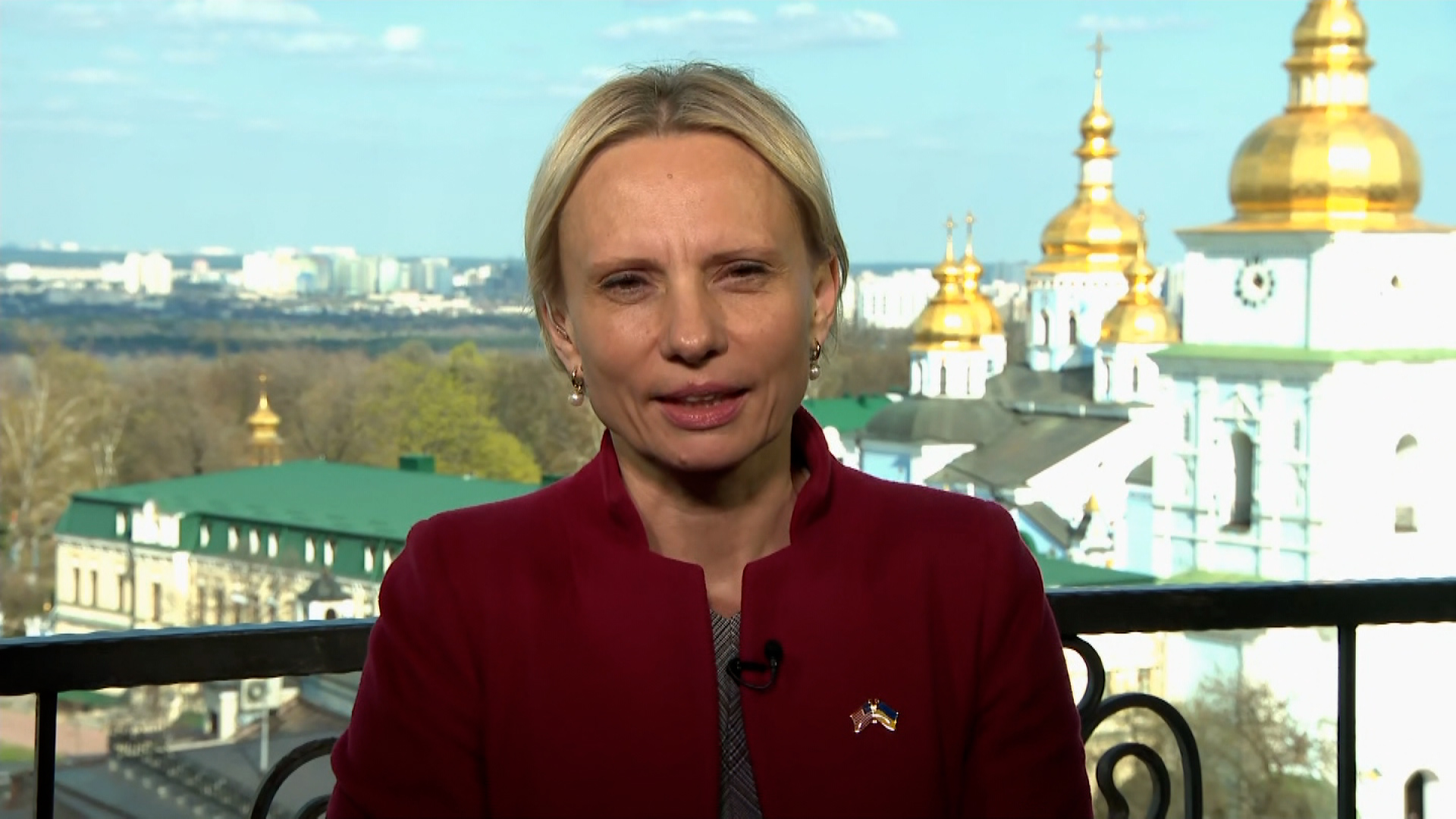
Republican Rep. Victoria Spartz of Illinois, who is the first Ukrainian-born member of Congress, on Sunday urged the US to restart diplomatic work in Ukraine, saying the move would send “a strong message for Ukrainian people.”
“A lot of countries are actually bringing (diplomatic work) back to Kyiv. The least we can do — actually bring it maybe to Lviv,” Spartz told CNN’s Dana Bash on “State of the Union.” “In any job – whether it’s a political job or diplomatic job – you do take some risks. You need to be smart. But also, that’s a part of your job, to do your service. And if you’re not on the ground, it’s very difficult to do your job.”
“It’s important but it also sends a strong message for Ukrainian people,” she added. “It’s important for them to see that support and it makes them stronger and they’re going to win (the war).”
The US and other countries pulled their diplomats and evacuated embassies and consulates from Kyiv in the days leading up to Russia’s invasion of Ukraine, shifting them to the western city of Lviv. Those officials were soon moved to Poland, commuting into Lviv, and the State Department suspended all diplomatic services in Lviv just before Russia’s invasion began.
Spartz also called on President Joe Biden to visit Ukraine, saying: “I think we can do it. We’re strong people, we’re a strong country. We definitely can arrange for our people to come here and visit Ukraine.”
The comment comes the same day US Secretary of State Antony Blinken and Defense Secretary Lloyd Austin plan to visit Kyiv.
White House official says to expect more announcements on US assistance to Ukraine
From CNN’s Sam Fossum
White House deputy national security adviser Jon Finer said Sunday to expect more announcements on US assistance to Ukraine “in the week ahead,” highlighting the billions of dollars in security aid the US has delivered so far.
“We’ve been announcing deliverables, which is a fancy word for things that we are providing to the Ukrainians, to enable their fight just about every day and if not every day, every week, and we will have more to say about that in the week ahead,” Finer said on NBC’s “Meet the Press,” stressing that US assistance has had a “significant” impact.
When asked if the US was ready to designate Russia a state sponsor of terrorism, Finer said that the administration continues to look into “additional steps” when it comes to punishing the Kremlin for its unprovoked invasion of Ukraine.
“I think we’ve been clear that we’re looking at that as we’re looking at a whole range of other additional steps that we could take to hold Russia accountable for the crimes that it’s perpetrating on the ground in Ukraine,” Finer said.
CNN reported on Monday that the US State Department was looking into adding Russia to the list of countries labelled as state sponsors of terrorism — which include North Korea, Iran, Cuba and Syria — a move that would further cement the Kremlin’s status as a pariah state.
Finer also pointed out Russia’s “shifting” war aims since its invasion of Ukraine started two months ago, noting that it is “quite clear” that the Kremlin’s forces have “had to adjust” in the face of stiff Ukrainian resistance to focus more on the South and East of the country.
Asked about whether a further push by the Russians into southern Ukraine would change US strategy, Finer said that the US has remained “nimble.”
“We’ve shown ability to be nimble to adjust our assistance and our approach as the Russian war aims have evolved. And we will continue to do that over time depending on how things evolve on the battlefield,” Finer said.
On the talks between the UN Secretary-General Antonio Guterres and Russian President Vladimir Putin, Finer said that Ukrainians should be the “touchstone” in any discussions.
Asked to confirm whether the US would be sending a high-level delegation to Ukraine, as Zelensky said would be happening, Finer reiterated that the US would not announce such a visit in advance.
“We’ve also been quite clear that if we were going to take some sort of high-level visit to Ukraine, we would not be announcing that in advance,” Finer said.
A Ukrainian-born US congresswoman traveled to Kyiv to celebrate Easter with her 88-year-old grandmother
From CNN’s Mike Hayes
Rep. Victoria Spartz, a Republican from Indiana, spoke to CNN’s Dana Bash this morning from Kyiv, Ukraine. Spartz, the first Ukrainian-born representative in the US Congress, said that she traveled to Ukraine to be with family to celebrate Orthodox Easter.
Spartz said that she met with the head of the Ukrainian church in Kyiv during her trip.
She said, “people, you know, even they go through trouble but they try to celebrate” the Easter holiday. She said that she was able to attend Easter church services with her 88-year-old grandmother today. She also has another grandmother, who is 95, that also still lives in Ukraine. Asked if she worries about their safety, Spartz said, “I do.”
“They couldn’t believe after everything Ukraine went through, Stalin, World War II, most of my family was killed,” she said.
Spartz said of her grandmother that she was with earlier today, that her father and mother were shot during World War II and that what’s going on in the country today is “unbelievable” to her.
“The atrocities that are happening in this country, even some man I talked to was crying,” Spartz added.
“This is so bad. You know, I mean, this is something that’s unbelievable. And the world has to help Ukraine to win this war, bring the peace back to Europe and bring the international order back. That’s the responsibility for us. We need to put more pressure on Russia,” she said.
Turkish president tells Ukrainian counterpart that evacuation of civilians from Mariupol “must be organized”
From CNN’s Yusuf Gezer in Istanbul, Mariya Knight in Atlanta and Niamh Kennedy in Dublin
Turkish President Recep Tayyip Erdogan told his Ukrainian counterpart Volodymyr Zelensky that an evacuation of civilians from the besieged city of Mariupol “must be organized.”
During a phone call with President Zelensky on Sunday, Erdogan said, “an evacuation must be organized to evacuate injured and civilians from Mariupol, where the situation is getting sadder every day,” according to a readout from the Turkish Directorate of Communications.
In a tweet Sunday, Zelensky said that “on the eve” of Erdogan’s call with Russian President Vladimir Putin, he stressed to the Turkish leader “the need for immediate evacuation of civilians from Mariupol, including Azovstal, and immediate exchange of blocked troops.”
The two leaders’ remarks echo calls Sunday from the International Committee for the Red Cross to be granted “immediate and unimpeded humanitarian access” to Mariupol so that voluntary evacuations of civilians can take place.
Turkey has previously offered to evacuate people trapped in the besieged city by boat. Turkish Defense Minister Hulusi Akar told reporters in early April that the country can “provide vessel support for evacuations from Mariupol.”
On Sunday, Erdogan reiterated Turkey’s “readiness to provide any help necessary in the negotiation process” between Russia and Ukraine, maintaining that he “has a positive view on the issue of guarantees,” the readout said.
Zelensky said he also raised issues relating to Ukraine’s “defense capabilities and global food security,” highlighting the threat posed by the blockade of navigation in the Black Sea.
View Zelensky’s Twitter thread here:
More than 370,000 Ukrainian refugees are in Germany, says country’s Interior Minister
From CNN’s Nina Avramova in London
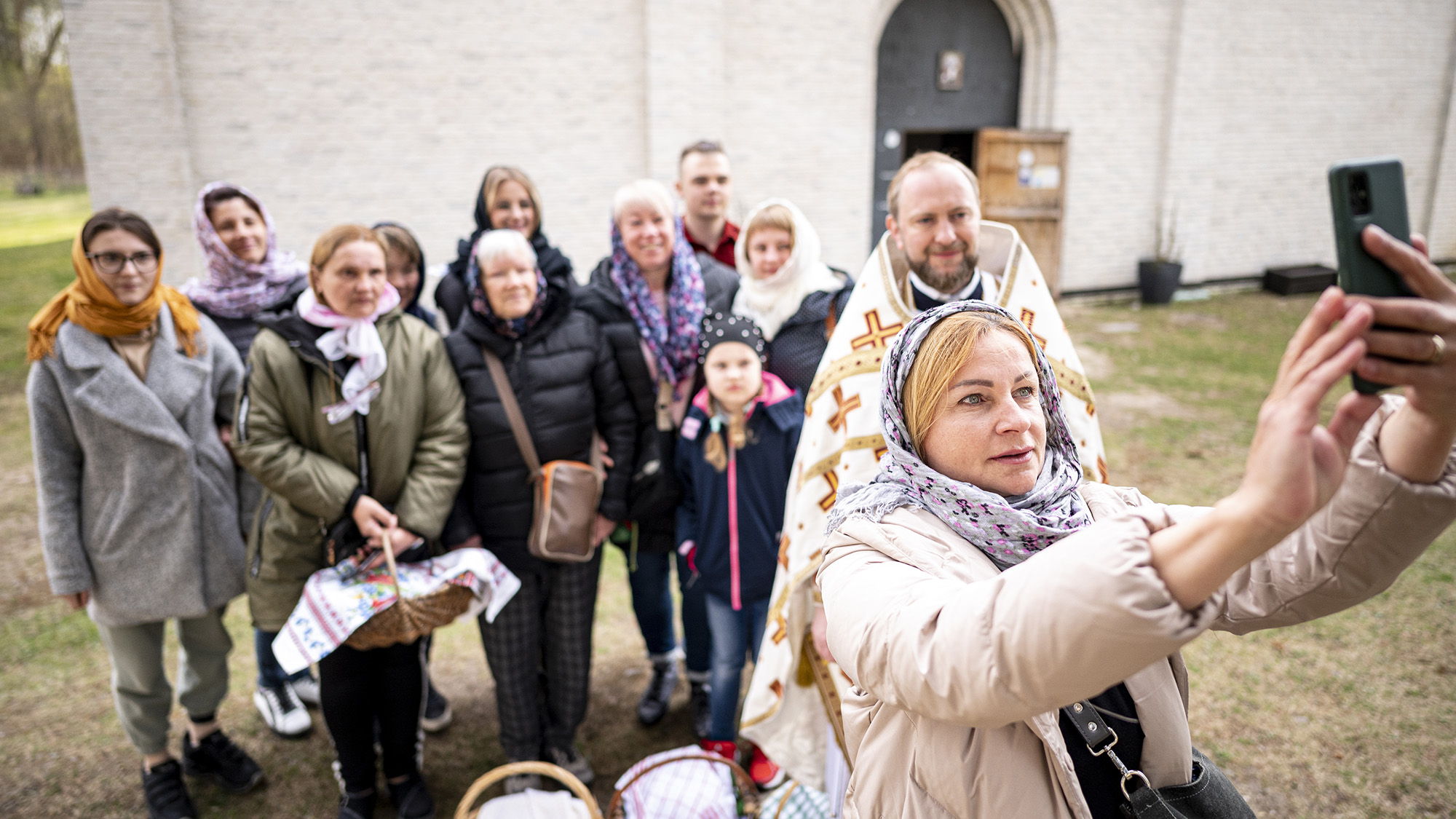
Germany’s federal police has recorded 376,124 refugees from Ukraine to date, according to the country’s Interior Ministry.
These are predominantly children, women and elderly people, they said in a Sunday tweet.
International Committee for the Red Cross says they urgently need “humanitarian access” to Mariupol
From CNN’s Niamh Kennedy
The International Committee of the Red Cross said that “immediate and unimpeded humanitarian access” to the besieged Ukrainian city of Mariupol is “urgently needed.”
In a press release Sunday, the ICRC said it is “deeply alarmed by the situation in Mariupol, where the population is in dire need of assistance.”
Russian forces continued to attack the city on Sunday, Ukrainian Capt. Sviatoslav Palamar said in an Easter message. Troops of Azov — originally formed as a nationalist volunteer battalion but subsequently folded into the Ukrainian military — continue to hold out in the besieged Azovstal plant, along with other Ukrainian forces as Ukrainian officials estimate that 100,000 civilians require evacuation from the devastated city.
“Immediate and unimpeded humanitarian access is urgently required to allow for the voluntary safe passage of thousands of civilians and hundreds of wounded out of the city, including from the Azovstal plant area,” the ICRC continued.
The ICRC have made several attempts to evacuate civilians from the city with one of its teams detained overnight by police in early April during one attempt to reach the city. After the team were released, an ICRC spokesperson said the incident showed “how volatile and complex the operation to facilitate safe passage around Mariupol has been for our team.”
“Each day, each hour that passes has a terrible human cost,” the ICRC stressed on Sunday, adding that it “stands ready” to help the parties to the conflict to agree upon voluntary evacuation arrangements.
Its teams “are in place to facilitate safe passage operations as soon as such agreement is reached and security guarantees are provided,” the ICRC concluded.
Lviv residents welcome displaced Ukrainians at Easter brunch
From CNN’s Lauren Said-Moorhouse and Oleksandra Ochman in Lviv, Ukraine
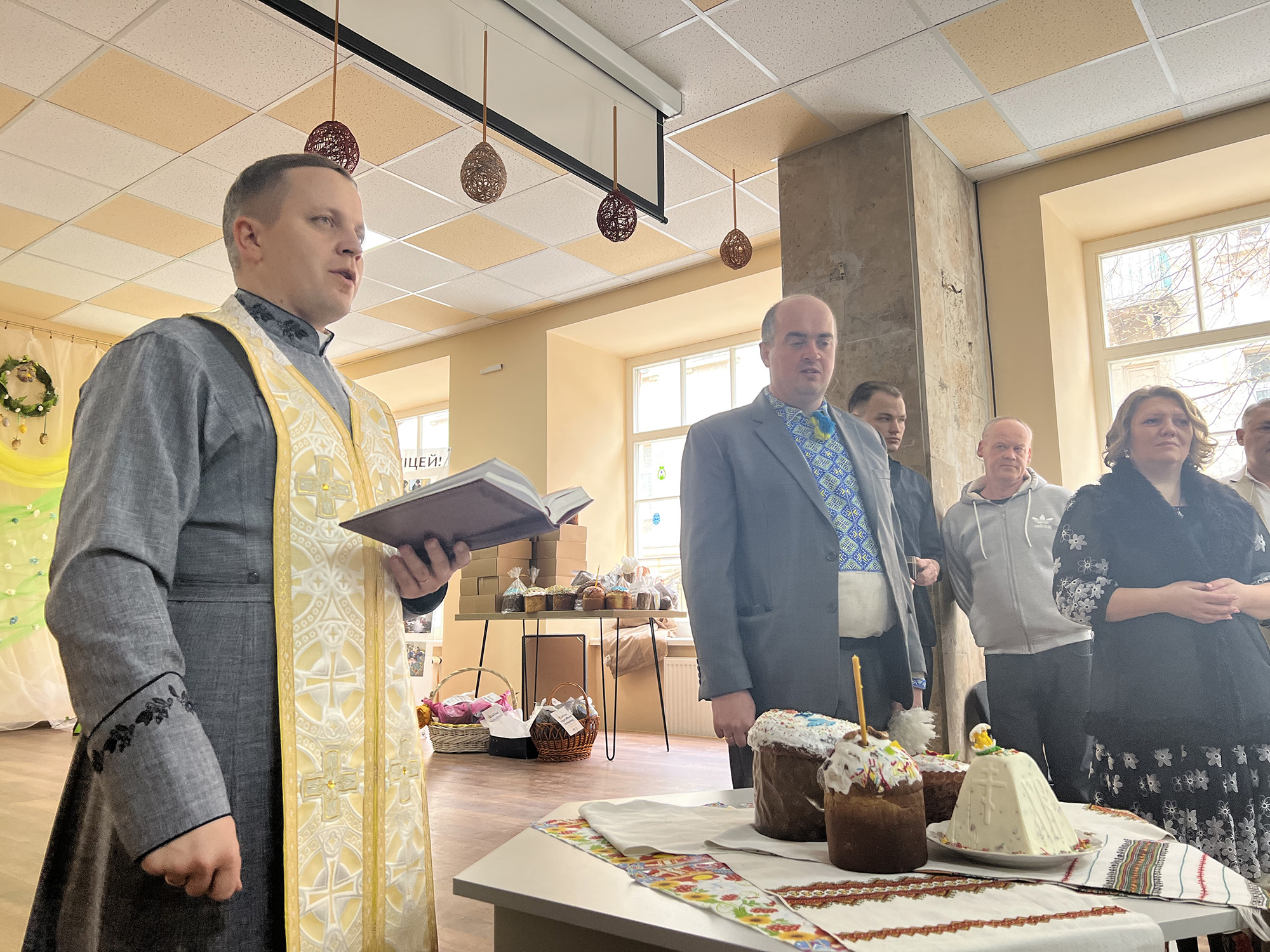
Orthodox Christians across Ukraine are marking Easter Sunday. But this year’s celebrations have been deeply marred by Russia’s ongoing and brutal invasion.
Today the sun shines brightly in the western city of Lviv — a welcome signal of spring after days of colder temperatures, grey skies and rain. It’s fitting on this most important of holidays, which emphasizes reflection and rebirth.
At a high school in the city center, teachers are putting on a special Easter brunch for displaced Ukrainians who fled here from war-torn parts of the country.
“It’s a great honor for us. I wanted all the people to get together and to have this lunch especially because this is the day when we really hope for our victory. And I do believe that we will win,” principal Svitlana Matys tells CNN.
She explains the school has been providing food and shelter to many in the weeks since the conflict erupted. Today, a priest has come to bless a bountiful buffet of paska (traditional Easter bread), sausages and salads prepared by the school’s staff.
Matys says eight of the teachers worked until 11 p.m. last night — delayed at one point by air raid sirens across the city — to put finishing touches on their offerings and ensure everything was perfect for their guests.
Shrugging it off, she says: “It was late but when we are at home preparing for this holiday, we do it all night – it’s a habit.”
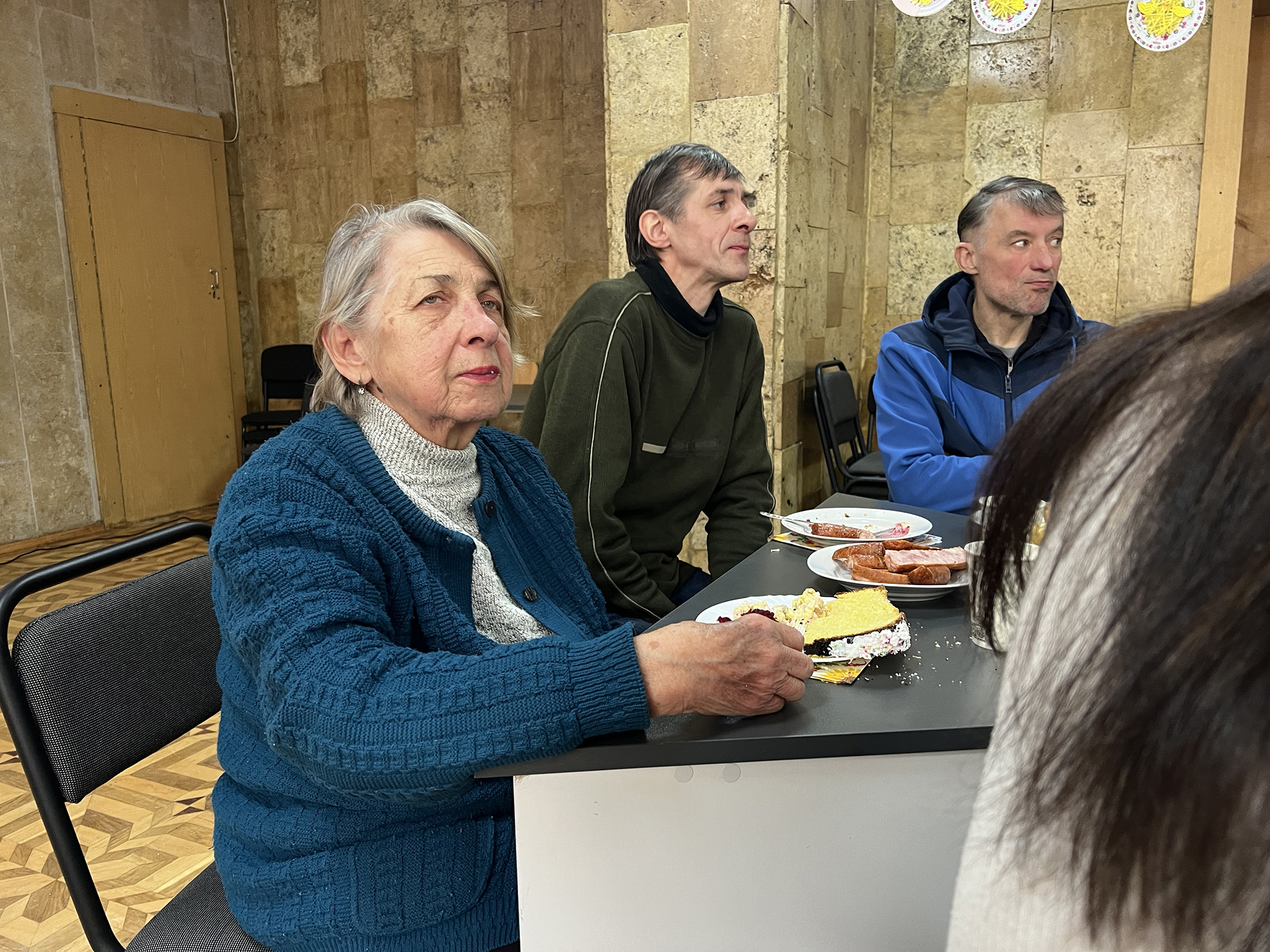
It’s a welcomed gesture from those here today, who include 73-year-old Tetiana from Severodonetsk in Luhansk region.
“We feel joy and gratitude for sheltering us. We were provided with all the convenience here and now such a nice holiday was organized for us,” she says.
“Yesterday we went to the church and today we are here. Easter for me is first of all peace. We wish the war to be finished as soon as possible,” she continues as tears started to fall from her eyes.
After mingling among the diners, Lviv Mayor Andriy Sadovyi reflects on the significance of celebrating this year.
“For Ukrainians, Easter is one of the most important holidays of the year — it symbolizes resurrection,” he explains. “Always when there are hard times for Ukraine we say: ‘Christ was resurrected, and Ukraine will be resurrected.’ And it’s really a sign, because Ukrainians in their nature are optimistic and believe in kindness.”
Source: https://www.cnn.com/europe/live-news/russia-ukraine-war-news-04-24-22/h_72b579fe9c7bff3507b214881ffe62f2

















